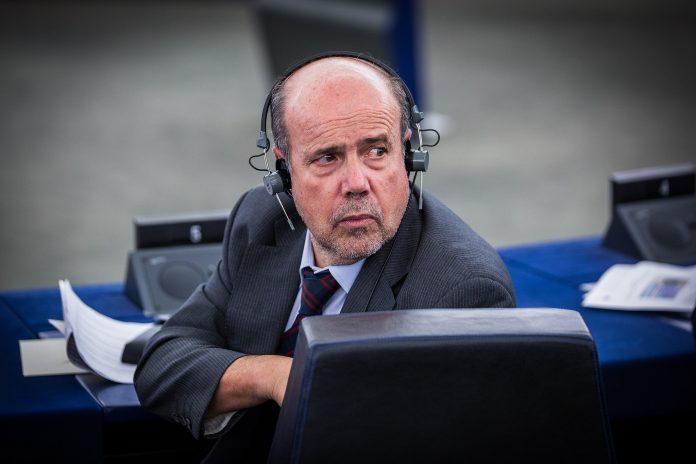EU countries fail to adequately integrate child refugees into their school systems, according to a new comparative study presented today at by the Global Progressive Forum (GPF), ahead of next month’s European Parliament debate with the EU Commission and Council on protection of child refugees.
EU law provides that every European country must offer access to education to each child refugee within 3 months from the filing of the asylum application. The research promoted by the Global Progressive Forum, in co-operation with the Migration Policy Group and the Sirius Network on Migration and Education, highlights instead delays and lack of resources to meet this target. In the best scenarios, the education provided often translates into educational-recreational activities, not actual schooling. Moreover, it reveals significant difference between EU countries and also within the same country.
Presenting the study at the European Parliament, in Brussels, GPF president Enrique Guerrero MEP said:
“Since early 2015, at least 1.5 million children fleeing conflict in their homeland have arrived in refugee camps in Europe and Turkey. Most of them have already lost an average of two and a half years of schooling in their home country due to the impact of conflict and violence (UNICEF 2017). Once in Europe, transfers between refugee centres and other delays in assessing their requests for asylum can add up to three and a half additional years during which they are deprived of learning opportunities. For unaccompanied minors, it can take even longer, as they also need to be provided with a guardian.
“Pragmatically speaking, sending child refugees back to school is also the best way of protecting them from abuses, exploitation and radicalization.
“Unfortunately, one of most dramatic finding of our study is that most of these children have dramatically disappeared from public authorities’ radars. There is very little few official data and information about them and their integration into schools.”
Thomas Huddleston, Research Director at the Migration Policy Group and chair of the Sirius Network on Migration and Education, added:
“Although member states have had three years to prepare with concrete recommendations and support from the European Commission and experts like SIRIUS, our study still finds insufficient support for refugee students and families as well as major differences and gaps between European countries.
“Also Europe is letting down refugee children by not monitoring how well they are doing in school and society. Europe cannot turn a blind eye to these children’s needs and strong desire to learn.”
For the full study: www.globalprogressiveforum.org/backtoschool

